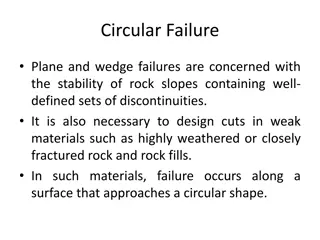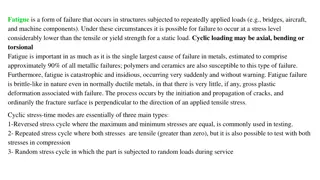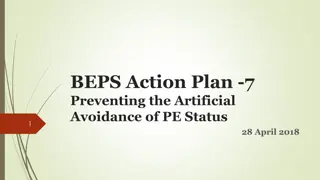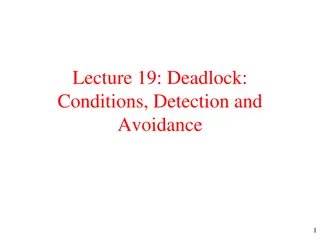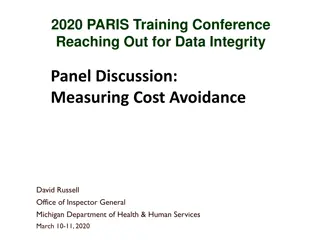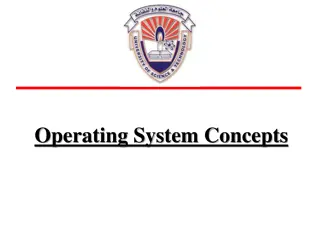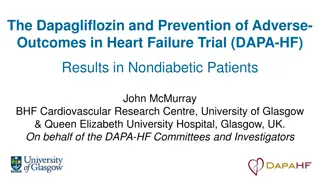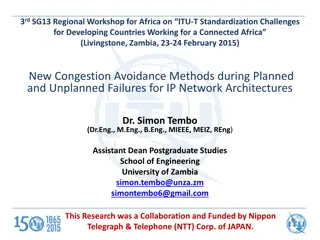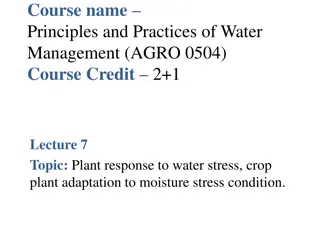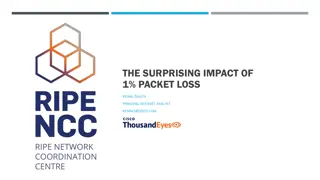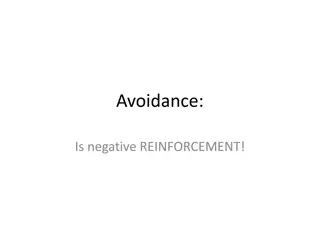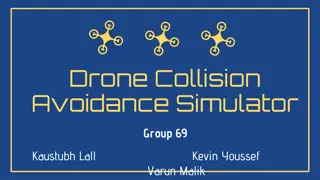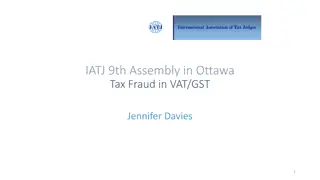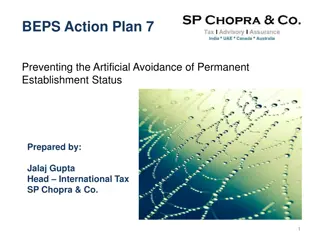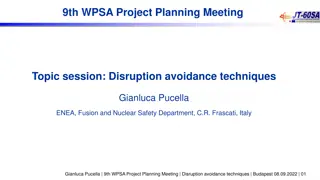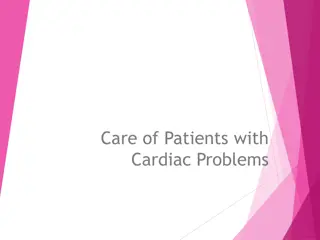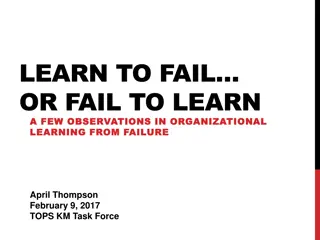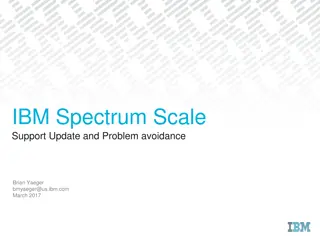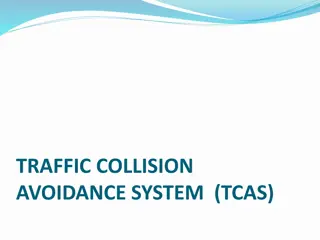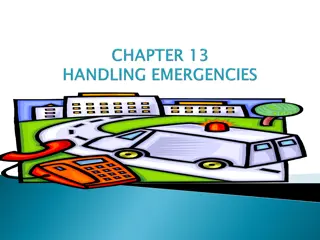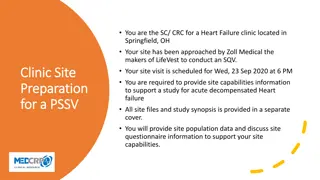FAILURE ANALYSIS
Failure analysis is crucial for addressing disruptions in components or assemblies, preventing recurrence, and ensuring safety. Explore the causes of failure, general procedures, and key considerations in failure analysis to enhance reliability and performance.
0 views • 49 slides
Efficacy and Safety of Ferric Carboxymaltose for Heart Failure with Iron Deficiency
Iron deficiency is prevalent in heart failure patients with reduced ejection fraction and is linked to poor outcomes. The HEART-FID trial investigates the impact of intravenous ferric carboxymaltose (FCM) on all-cause mortality, heart failure hospitalizations, and exercise capacity in chronic HFrEF
1 views • 17 slides
Understanding Kidney Failure: Causes, Symptoms, and Treatment Options
Kidney failure can be temporary or chronic, affecting the body's ability to eliminate toxins. Common causes include diabetes and high blood pressure. Recognizing symptoms early and managing conditions like diabetes can prevent kidney failure. Treatment options such as dialysis and kidney transplant
5 views • 47 slides
Embracing Failure: Stories of Resilience and Success
Discover the transformative power of failure through the inspiring stories of Neil Gaiman, Michael Jordan, Oprah Winfrey, and Thomas Edison. These remarkable individuals show us that failure is not the end but a stepping stone to growth, innovation, and success. Embrace mistakes, learn from them, an
0 views • 10 slides
Empagliflozin Effects on Heart Failure with Reduced Ejection Fraction: EMPEROR-Reduced Trial Overview
Empagliflozin's impact on cardiovascular and renal events in heart failure with reduced ejection fraction was assessed in the EMPEROR-Reduced trial led by Milton Packer, MD, and Faiez Zannad, MD. The trial, enriched for patients with severe left ventricular dysfunction, randomized participants to em
2 views • 22 slides
Understanding Emotionally Based School Avoidance in Children and Young People
Emotionally Based School Avoidance (ESBA) is a common issue among children and young people, leading to school attendance concerns. This article sheds light on the diverse presentation of school avoidant behaviors, effective strategies for addressing them, and the prevalence of anxiety and stress as
1 views • 42 slides
Understanding Different Types and Classifications of Heliports
Heliports, helidecks, helistops, and helipads serve as key landing areas for helicopters. They come in various classifications including military, federal, private use, public use, commercial service, and personal use. Factors influencing site selection include traffic considerations, obstruction av
0 views • 21 slides
Understanding Circular Failure in Rock Slopes: Causes and Design Considerations
Circular failure in rock slopes, such as those containing discontinuities or weak materials like highly weathered or fractured rock, occurs along circular surfaces. This type of failure is common when geological features are not clearly defined. Factors influencing circular failure, conditions under
0 views • 21 slides
Understanding Fatigue Failure in Structural Materials
Fatigue failure is a common form of structural failure caused by repetitive loading, especially in metals but also affecting polymers and ceramics. This type of failure can occur at stress levels much lower than the material's static strength, often leading to sudden and catastrophic breaks without
0 views • 9 slides
Autonomous Obstacle Avoidance Robot Using ROS, Lidar, and Raspberry Pi with Matlab Path Planning
Obstacle avoidance in robotics has evolved from basic collision avoidance to autonomous path planning with the use of Lidar and ROS. This project involves mapping the environment using Lidar scans and implementing a path planning algorithm in Matlab to navigate around obstacles. By utilizing a Raspb
0 views • 15 slides
Preventing Artificial Avoidance of PE Status in International Business: Case Studies & Exemptions
Explore case studies on Agency PE and Preparatory/Auxiliary Services, along with PE exemptions for specific activities to prevent the artificial avoidance of Permanent Establishment status in the global tax landscape.
2 views • 14 slides
Understanding Deadlock: Conditions, Detection, and Avoidance
Explore strategies for dealing with deadlocks, from detection and recovery to dynamic avoidance. Learn about deadlock avoidance methods like being conservative in resource granting and dive into safe and unsafe states, the Banker's algorithm, and the four conditions for deadlock. Discover how to pre
0 views • 15 slides
Michigan OIG: Cost Avoidance and Investigation Types Overview
Michigan's Office of Inspector General (OIG) within the Department of Health & Human Services conducts investigations to ensure data integrity, targeting areas like cost avoidance, fraud, and program violations in public assistance programs. The OIG's efforts have resulted in significant savings and
0 views • 12 slides
Understanding Deadlock Avoidance in Operating System Concepts
Deadlock Avoidance is a critical concept in operating system design to prevent system resources from entering a deadlock state. By requiring additional information about resource requests and utilizing algorithms like the banker's algorithm, systems can dynamically allocate resources to avoid circul
1 views • 29 slides
DAPA-HF Trial: Dapagliflozin in Heart Failure Patients without Diabetes
The DAPA-HF trial investigated the use of dapagliflozin, an SGLT2 inhibitor, in patients with heart failure and reduced ejection fraction, regardless of diabetes status. Funded by AstraZeneca, the study enrolled 4,744 patients from 20 countries, showing promising results in reducing cardiovascular d
3 views • 22 slides
New Congestion Avoidance Methods for IP Networks
This research presentation highlights the challenges of IP network failures, focusing on planned and unplanned scenarios. Dr. Simon Tembo discusses innovative methods to prevent congestion during failures, including a backup topology design for unplanned failures and a congestion avoidance approach
2 views • 40 slides
Understanding Social Anxiety and Avoidant Behaviors
Social anxiety involves intense fear and avoidance of social situations, leading to catastrophic thinking and physiological reactions like performance anxiety. Individuals may anticipate criticism, rejection, or embarrassment, which can interfere with their functioning. This condition can manifest a
3 views • 30 slides
Developing an Autonomous Robot Platform for Robotics Enthusiasts
In the journey to simplify entry into robotics, the autonomous robot platform project aims to offer mobility and communication capabilities. Addressing the limitations of existing hobby and commercial robots, the goal is to create an affordable, user-friendly system that navigates autonomously, comm
0 views • 13 slides
Plant Responses to Water Stress in Agricultural Management
Understanding how plants respond to water stress is crucial for effective agricultural management. Stress can affect plant growth and development, leading to various adaptations such as resistance, avoidance, and tolerance. This course explores the physiological mechanisms behind plant stress respon
0 views • 44 slides
Understanding the Impact of 1% Packet Loss on TCP and the Cubic Congestion Avoidance Algorithm
Delve into the surprising effects of even 1% packet loss on network flows, the methods TCP uses to mitigate loss, and how the CUBIC congestion avoidance algorithm works. Explore the researched but not quantified problem of packet loss and learn about a test methodology using Ubuntu hosts to measure
0 views • 24 slides
Understanding Avoidance Behavior and Its Theories
Avoidance behavior involves negative reinforcement to increase the frequency of operant responses, not punishment. Different types of avoidance tests, such as discriminated avoidance and shuttle avoidance, are used to study negative reinforcement. The Two-Factor Theory of avoidance conditioning expl
0 views • 61 slides
Enhancing Cost Avoidance Strategies in Medicaid Programs
Explore the impact of Veterans Benefits and Long-Term Care programs on reducing expenditures, leveraging third-party liabilities, and maximizing premium savings through managed care. Key data points include cost avoidance per client, interstate matches, and premium savings across multiple matches. T
0 views • 10 slides
Drone Collision Avoidance Simulator for Autonomous Maneuvering
Our project focuses on developing a drone collision avoidance simulator using NEAT and Deep Reinforcement Learning techniques. We aim to create a model that can maneuver obstacles in a 2D environment, enhancing performance and survivability. Previous attempts utilizing non-machine learning solutions
0 views • 28 slides
Overview of Canadian and South African General Anti-Avoidance Rules (GAARs)
This review discusses the General Anti-Avoidance Rules (GAARs) in Canada and South Africa, focusing on the criteria for identifying avoidance transactions and impermissible avoidance arrangements. The Canadian GAAR targets transactions seeking tax benefits, while the South African GAAR focuses on bu
0 views • 15 slides
Analysis of Tax Avoidance Transactions in Case Study on GAAR Application
The case study explores the incorporation of a business into a corporation to realize tax benefits, including tax deferral and lower rates. It raises questions on whether the transactions were primarily for tax avoidance purposes, highlighting the complexities of tax planning and the application of
0 views • 47 slides
Understanding GST Fraud and Avoidance Schemes
Exploring the nuances between tax fraud and tax avoidance in the context of GST, this content delves into types of GST abuse, Division 165 anti-avoidance rule, scheme structures, and consequences of GST fraud. Learn about the implications of dishonest tax practices and lawful tax conduct in the real
0 views • 10 slides
Understanding BEPS Action Plan 7: Preventing Artificial Avoidance of Permanent Establishment Status
The Action 7 Report aims to prevent artificial avoidance of Permanent Establishment (PE) status by making changes to the PE definition in the OECD Model Tax Convention. BEPS refers to tax planning strategies exploiting tax rule gaps to shift profits to low-tax locations. The OECD issued 15 action pl
0 views • 10 slides
Effective Coping Strategies for Stress Management
Avoidance coping is described as a maladaptive way of dealing with stress by avoiding the source of discomfort. In contrast, active coping involves addressing stressors directly through cognitive or behavioral strategies. Avoidance coping can lead to increased stress and conflict in relationships, w
0 views • 11 slides
Utilizing Disruption Avoidance Techniques in Plasma Control for Enhanced Stability
Exploring disruption avoidance techniques in plasma control is crucial for maintaining stability and safety in operating scenarios. Gianluca Pucella discusses topics such as plasma disruptions, prevention methods, emergency shutdown protocols, and disruption prediction models involving machine learn
0 views • 7 slides
Understanding Cardiac Problems and Heart Failure
This educational content covers essential information on caring for patients with cardiac problems, including blood flow through the heart, causes and types of heart failure, such as left-sided and right-sided heart failure, as well as high-output failure. It also discusses the classification and st
0 views • 24 slides
Observations in Organizational Learning from Failure
Explore the importance of learning from failure in organizational settings through initiatives such as failure forums, peer-assisted problem-solving sessions, and reframing failure as a stepping stone to success. Encouraging open discussion of failure, sharing experiences externally, and promoting a
1 views • 6 slides
IBM Spectrum Scale Software Support Update and Problem Avoidance Overview
Expanding support team in China, improving time zone coverage, enhancing problem classification, and implementing best practices in problem avoidance are key focuses of IBM Spectrum Scale Software Support. With a dedicated team in Beijing, response times for production outages have decreased, leadin
0 views • 36 slides
Understanding TCAS - Traffic Collision Avoidance System
A Traffic Collision Avoidance System (TCAS) is a vital aircraft collision avoidance technology that helps reduce mid-air collisions by monitoring the airspace around an aircraft. TCAS operates independently of ground-based equipment and advises pilots on potential conflicting aircraft. Mandated by t
0 views • 13 slides
Vehicle Safety Protocols: Handling Tire Blows, Brake Failure, and More
Learn essential actions for handling emergencies like tire blowouts, brake failure, stuck accelerator, and steering failure. Additionally, understand off-road recovery, minimizing damage due to potholes, and escaping from a sinking vehicle. Discover collision avoidance techniques and steps to take i
0 views • 9 slides
Micro:bit Robot Ultrasonic Obstacle Avoidance Tutorial
Learn how to set up and program a micro:bit robot for ultrasonic obstacle avoidance. Follow the step-by-step guide to prepare hardware, connect the micro:bit to the computer, search for programming blocks, and test the ultrasonic sensor. Children can understand the concepts and experiment with obsta
0 views • 10 slides
Heart Failure Clinic in Springfield, OH - Site Visit for LifeVest Study
Heart Failure clinic in Springfield, OH has been approached by Zoll Medical to conduct a study on acute decompensated heart failure. The clinic's capabilities, staff, and procedures for patient recruitment during COVID-19 are discussed. The study focuses on patients with systolic or diastolic heart
0 views • 14 slides
Macromechanical Analysis of Lamina and Tsai-Hill Failure Theory Overview
The Tsai-Hill failure theory is based on the strengths of a unidirectional lamina, incorporating longitudinal and transverse tensile and compressive strengths, as well as in-plane shear strength. This theory, derived from the distortion energy theory, provides criteria for determining lamina failure
0 views • 15 slides
Pickabo Anup Chaudhari Project Overview
This project overview showcases the development and accomplishments of the Pickabo system by Anup Chaudhari on December 2nd, 2014. It includes objectives, missions, systems overview, final platform, goals achieved, lessons learned, missions like obstacle avoidance and sphere tracking, and future imp
0 views • 9 slides
MESA Heart Failure Study: Research Aims and Findings
The MESA Heart Failure Study led by Shah and Bertoni aims to determine the prevalence of early heart failure, explore the pathogenesis through risk factor associations, biomarkers, and machine learning analyses, and understand phenotypic signatures related to heart failure subtypes. The study involv
0 views • 10 slides
Enhancing Vehicle Safety with Backover Avoidance Technology
Explore the importance of backover avoidance technology in enhancing vehicle safety, as highlighted by the tragic incident of 2-year-old Cameron Gulbransen. The Cameron Gulbransen Kids Transportation Safety Act of 2007 spurred advancements in rear visibility requirements, including additional mirror
0 views • 19 slides







